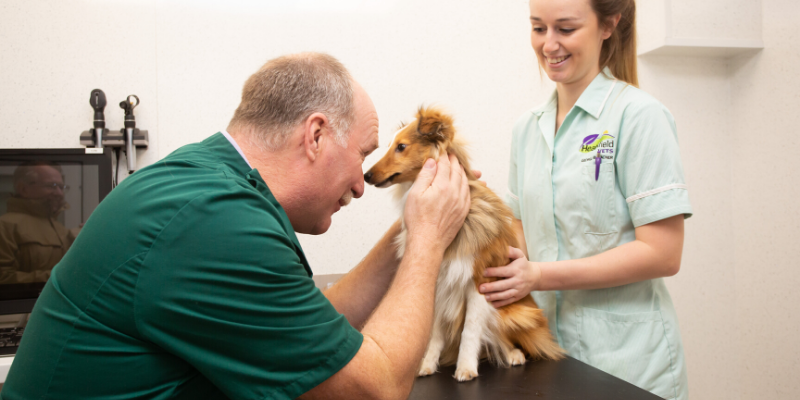Seasonal allergies
Whilst we humans suffer from sneezing and sniffing thanks to allergens, our pet’s allergies take the form of skin irritation or inflammation.
If your cat or dog seems itchy at only certain times of year, they may be reacting to seasonal, environmental allergens.
Signs and symptoms
- Scratching or biting at their fur
- Red, irritated and inflamed skin
- Hair loss and excess shedding
- Compulsive paw licking
- Scratching at the ears or head shaking
- Coughing or wheezing (mainly seen in cats)
- Puffy eyes
If you see any symptoms, speak to your vet for some advice. Severe itching can quickly lead to ‘hotspots’, an area of red, infected and inflamed skin caused by bacteria.
Treatment
Your vet will need to diagnose and identify the cause of the allergic reaction. With certain skin allergies there may be no cure and treatment will most likely concentrate on managing the symptoms long term with medication. Allergies can often be an underlying issue causing anal gland problems and ear infections.
There may be preventative steps you can also take as an owner to help an allergy-suffering pet. Taking walks when the pollen count is low, avoiding meadows or long grass, washing off paws and coats after a walk and hoovering the house regularly could help to reduce exposure.
Flea Bite Allergies (Flea Allergy Dermatitis)
We all know fleas can make us and our animals itch! But did you know that some animals can be allergic to the bites themselves? ‘Flea allergy dermatitis’ is one of the most common skin complaints in pets. Even 1 or 2 flea bites can make animals severely uncomfortable.
Signs and symptoms
- Severe itching, which can last for weeks.
- A rash or area of raw, red and irritated skin.
- Hair loss around bite areas.
- Constant itching, biting, grooming or clawing.
- Small pink or red raised bumps.
With cats the areas to look out for are the neck and face, whilst on dogs you’re more likely to find signs around the legs, rump and tail area.
Treatment
If you notice any symptoms, call your vet for advice as soon as possible. Severe itching can damage the skin and quickly lead to bacterial infections, making the problem a lot worse. Don’t assume just because you can’t see any fleas that there isn’t a problem, as flea allergies can last for weeks after a bite.
Your vet will treat the clinical symptoms and ease the itch and inflammation. Never try to medicate your pet yourself, human anti-histamines can be toxic.
Eliminating fleas is also a good preventative step and if your animal suffers from flea allergies, it is very important to practice strict monthly flea prevention to prevent flare ups. Please discuss with your vet which flea prevention treatment is best to use for your situation- treatments can come in spot on, tablet or collar forms. Over the counter flea treatments may not be as effective as they contain different active ingredients. Your vet can also advise you on the best way to treat your home to eliminate any pesky fleas.
Food allergies and intolerance
Food allergies in pets are not all that common, but we do see occasional cases here at Heathfield Vets. Unlike humans, an animal’s reaction to an allergen is usually seen through the skin as a chronic itch.
Pets with food allergies usually show signs before the age of 3 and may suffer from excess itching, recurrent skin or ear infections and possibly some upset stomach troubles. It is best to contact your vet if you notice any symptoms so they can properly diagnose the cause of the reaction.
Food allergies or intolerances can be tested for by carrying out a dietary exclusion trial under the direction of a vet; feeding your pet only certain foods for a period of 8 weeks so as to rule out the probable cause. Blood testing can also be performed which can show if a pet is positive or negative for a reaction to the proteins in certain plants or meat.
There are also medications available which can ease the itch whilst the cause is narrowed down. You vet is the best person to speak to about managing your pet’s allergies.
Call us on 01435 864422 if you have any concerns about allergies.


